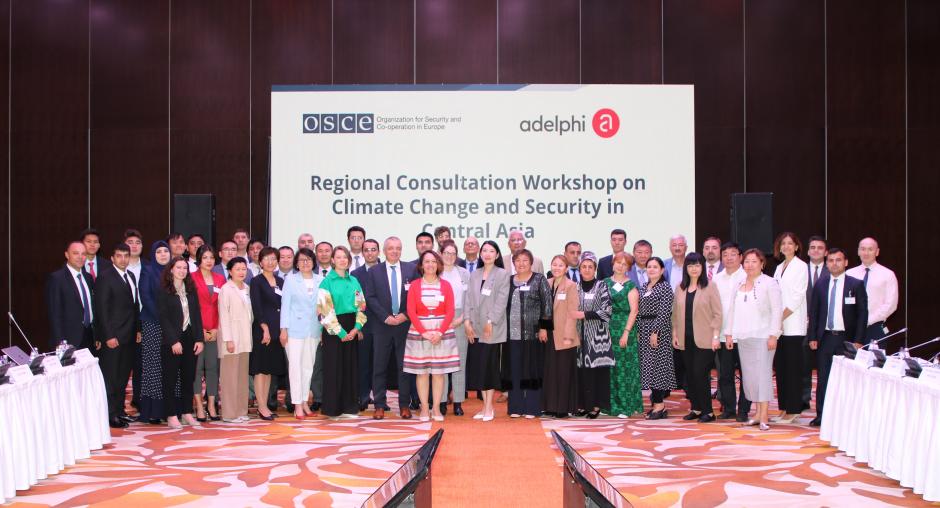Climate change and security in Central Asia – regional consultation launched by OSCE and adelphi

On 13-14 July, over 50 participants representing a wide range of government and civil society organizations from Kazakhstan, Kyrgyzstan, Tajikistan, Turkmenistan and Uzbekistan as well as international organizations convened in a workshop in Almaty, Kazakhstan. The initiative aimed to discuss climate change and security challenges in the region, and to identify regional co-operation opportunities and joint actions to address these challenges.
This event, organized by the Office of the Co-ordinator of OSCE Economic and Environmental Activities (OCEEA) and the Berlin-based think tank adelphi, in collaboration with the OSCE Field Operations in Central Asia, kicked off a regional consultation process on climate change and security.
In his opening remarks, Ralf Ernst, Deputy Co-ordinator and Head of Environmental Activities at the OCEEA, drew attention to the 2021 OSCE Ministerial Council Decision on climate change and underlined that addressing the complex challenges caused by climate change requires co-operation. “With today’s initiative, the OSCE aims to create new avenues for transboundary and regional co-operation to reduce the risks for the benefit of prosperity, stability and security in the region,” said Ernst.
Shattyk Tastemirova, the representative of the Ministry of Ecology, Geology and Natural Resources of Kazakhstan, highlighted the country’s commitment to climate action and its planned reforms in many sectors of its economy. “The consultation process that we are embarking on today in Almaty together with our neighbors is an important step in our collective efforts to address climate change, as it will allow us to exchange information and best practices towards strengthening climate resilience in our region," she said.
Pia van Ackern, Advisor at adelphi, highlighted that the challenges linked to climate change and security must be urgently addressed. “According to climate projections, Central Asia could see more frequent and intense droughts and heatwaves in the coming years, along with more glacial melt and water scarcity, all of which could lead to negative socio-economic and security impacts. As these impacts are not confined to one country only, transboundary co-operation is key,” she stated.
The Regional Consultation Workshop on Climate Change and Security in Central Asia was organized within the framework of the OSCE extra-budgetary project “Strengthening responses to security risks from climate change in South-Eastern Europe, Eastern Europe, the South Caucasus, and Central Asia” funded by Andorra, Austria, Czech Republic, Finland, France, Germany, Italy, Liechtenstein, Luxembourg, Norway, Poland, Sweden, and the United States.
